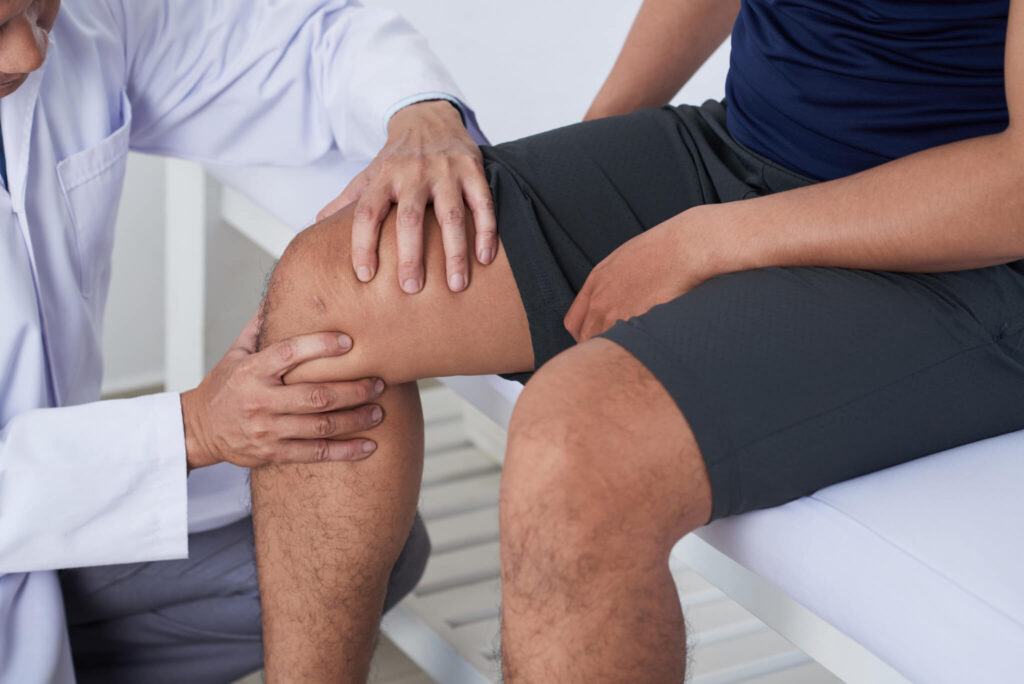
Knee arthritis is a common condition that affects millions of people worldwide. It occurs when the cartilage in the knee joint wears down, leading to pain, stiffness, and reduced mobility. While there is no cure for arthritis, effective knee arthritis treatment can help manage symptoms, improve joint function, and enhance quality of life. This article provides a detailed guide to understanding knee arthritis, its causes, and the best treatment options available.
What is Knee Arthritis?
Knee arthritis is a degenerative joint condition characterized by the breakdown of cartilage, the cushioning tissue that protects the bones in the knee joint. As the cartilage wears away, the bones rub against each other, causing pain, swelling, and stiffness. The most common types of knee arthritis include:
- Osteoarthritis (OA): The most prevalent form, caused by wear and tear over time.
- Rheumatoid Arthritis (RA): An autoimmune condition that causes inflammation in the joints.
- Post-Traumatic Arthritis: Develops after an injury to the knee.
Symptoms of Knee Arthritis
The symptoms of knee arthritis can vary in severity but often include:
- Persistent pain in the knee joint
- Swelling and stiffness, especially in the morning or after inactivity
- Reduced range of motion
- A grinding or cracking sensation during movement
- Weakness or instability in the knee
If you experience these symptoms, it’s important to seek a proper diagnosis and explore knee arthritis treatment options.
Causes and Risk Factors
Several factors can contribute to the development of knee arthritis:
- Age: The risk increases with age as cartilage naturally wears down.
- Weight: Excess weight puts additional stress on the knee joints.
- Genetics: A family history of arthritis can increase susceptibility.
- Injuries: Previous knee injuries can lead to post-traumatic arthritis.
- Overuse: Repetitive stress on the knees from certain activities or occupations.
Effective Knee Arthritis Treatment Options
While knee arthritis cannot be cured, a combination of treatments can help manage symptoms and improve joint function. Here are the most effective knee arthritis treatment options:
1. Lifestyle Modifications
Making changes to your daily habits can significantly reduce knee pain and slow the progression of arthritis.
- Weight Management: Losing excess weight reduces stress on the knee joints.
- Low-Impact Exercise: Activities like swimming, cycling, or yoga can strengthen muscles and improve flexibility without straining the knees.
- Healthy Diet: A diet rich in anti-inflammatory foods, such as fruits, vegetables, and omega-3 fatty acids, can help reduce inflammation.
2. Physical Therapy
Physical therapy is a cornerstone of knee arthritis treatment in Houston. A physical therapist can design a personalized exercise program to:
- Strengthen the muscles around the knee
- Improve joint flexibility and range of motion
- Reduce pain and stiffness
- Enhance overall mobility
3. Medications
Medications can help manage pain and inflammation associated with knee arthritis. Common options include:
- Over-the-Counter Pain Relievers: Non-prescription medications like acetaminophen or ibuprofen can provide temporary relief.
- Prescription Medications: For severe pain, stronger painkillers or anti-inflammatory drugs may be prescribed.
- Topical Creams: Creams or gels containing capsaicin or NSAIDs can be applied directly to the knee for localized relief.
4. Injections
For more targeted knee arthritis treatment, injections may be recommended:
- Corticosteroid Injections: These reduce inflammation and provide pain relief for several weeks or months.
- Hyaluronic Acid Injections: Also known as viscosupplementation, these injections lubricate the joint and improve mobility.
5. Assistive Devices
Using assistive devices can reduce stress on the knee joint and improve mobility:
- Braces or Supports: Knee braces can provide stability and reduce pain during activity.
- Orthotics: Custom shoe inserts can improve alignment and reduce knee strain.
- Canes or Walkers: These devices can help distribute weight and reduce pressure on the knees.
6. Alternative Therapies
Some individuals find relief through alternative therapies, which can complement traditional knee arthritis treatment:
- Acupuncture: May help reduce pain and improve joint function.
- Massage Therapy: Can alleviate muscle tension and improve circulation around the knee.
- Supplements: Glucosamine and chondroitin are popular supplements that may support joint health, though their effectiveness varies.
7. Surgical Options
In severe cases where conservative treatments are ineffective, surgery may be considered:
- Arthroscopy: A minimally invasive procedure to remove damaged tissue or bone fragments.
- Osteotomy: Realigns the bones to reduce pressure on the knee joint.
- Partial or Total Knee Replacement: Replaces the damaged joint with an artificial one, providing long-term relief.
When to See a Doctor
If you experience persistent knee pain, swelling, or stiffness, it’s important to consult a healthcare professional. Early diagnosis and treatment can slow the progression of arthritis and prevent further joint damage. Seek medical attention if:
- Pain interferes with daily activities
- Symptoms worsen over time
- You notice significant swelling or redness
- The knee feels unstable or gives out
Preventing Knee Arthritis
While not all cases of knee arthritis can be prevented, certain measures can reduce your risk:
- Maintain a Healthy Weight: Excess weight increases stress on the knees.
- Stay Active: Regular exercise strengthens muscles and supports joint health.
- Protect Your Knees: Use proper techniques during physical activities and wear supportive footwear.
- Avoid Overuse: Take breaks during repetitive activities to reduce strain on the knees.
- Eat a Balanced Diet: Focus on foods that reduce inflammation and support joint health.
Conclusion
Knee arthritis is a challenging condition, but with the right knee arthritis treatment, it is possible to manage symptoms and maintain an active lifestyle. From lifestyle changes and physical therapy to medications and surgical options, there are numerous ways to address knee arthritis and improve joint function. If you’re experiencing knee pain or stiffness, don’t hesitate to seek professional advice. Early intervention and a personalized treatment plan can make a significant difference in your quality of life. Remember, taking proactive steps today can help you stay mobile and pain-free for years to come.
Keep an eye for more latest news & updates on Buzz Feed!





